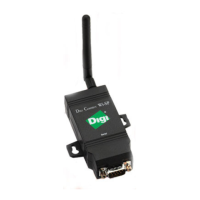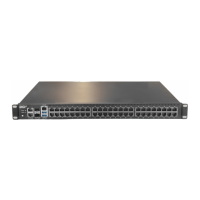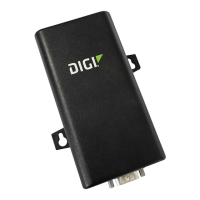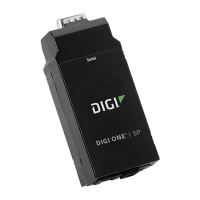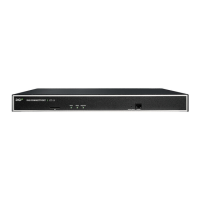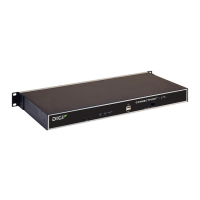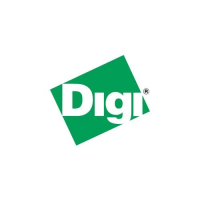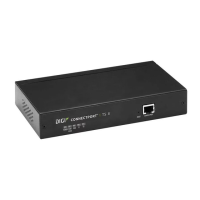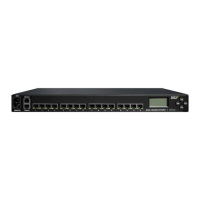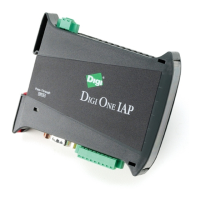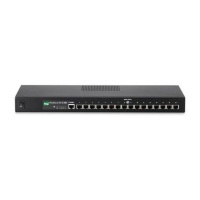Digi Connect and ConnectPort TS Family web interface Administration
Digi Connect Family and ConnectPort TS Family
99
Supported security implementations
The X.509 Certificate/Key Management manages several kinds of certificate databases and security
implementations, including:
n X.509 Certificate Authority/Certificate Revocation—A trusted third party issues digital
certificates for use by other parties.
n Secure Socket Layer (SSL)/Transport Layer Security (TLS)—Use SSL and TLS security to
secure access to web pages for configuration purposes, secure serial port connections, and SSL
autoconnect, an automatic connection (autoconnection) between a serial port on the device
and a remote network destination.
n Secure Shell (SSHv2)—Use SSHv2 to secure access to a device’s console and serial ports for
configuration purposes.
Benefits of certificates
You gain the following benefits when you use certificates to manage security:
n Certificates are more secure than Digi self-signed certificates.
n Certificate management allows you to push your own certificates out to Digi device.
n The key sizes are more flexible.
n When you manage certificates through the web interface, it creates a repository of certificates
that other applications and processes can use.
Additional information on certificate management
Implementing certificate management requires selecting a security type and understanding its
technical details and key operations. If you are tasked with certificate management for your
organization and need more background information, a good place to start is Wikipedia articles for the
security types (X.509 CA/CRL, SCEP, VPN, SSL/TLS), and SSH). These articles reference resources such
as standards, Request For Comments pages (RFCs), and articles that provide more technical detail.
Tables managed by the X.509 Certificate/Key Management feature
Certificate and key management information is stored in the following database tables:
